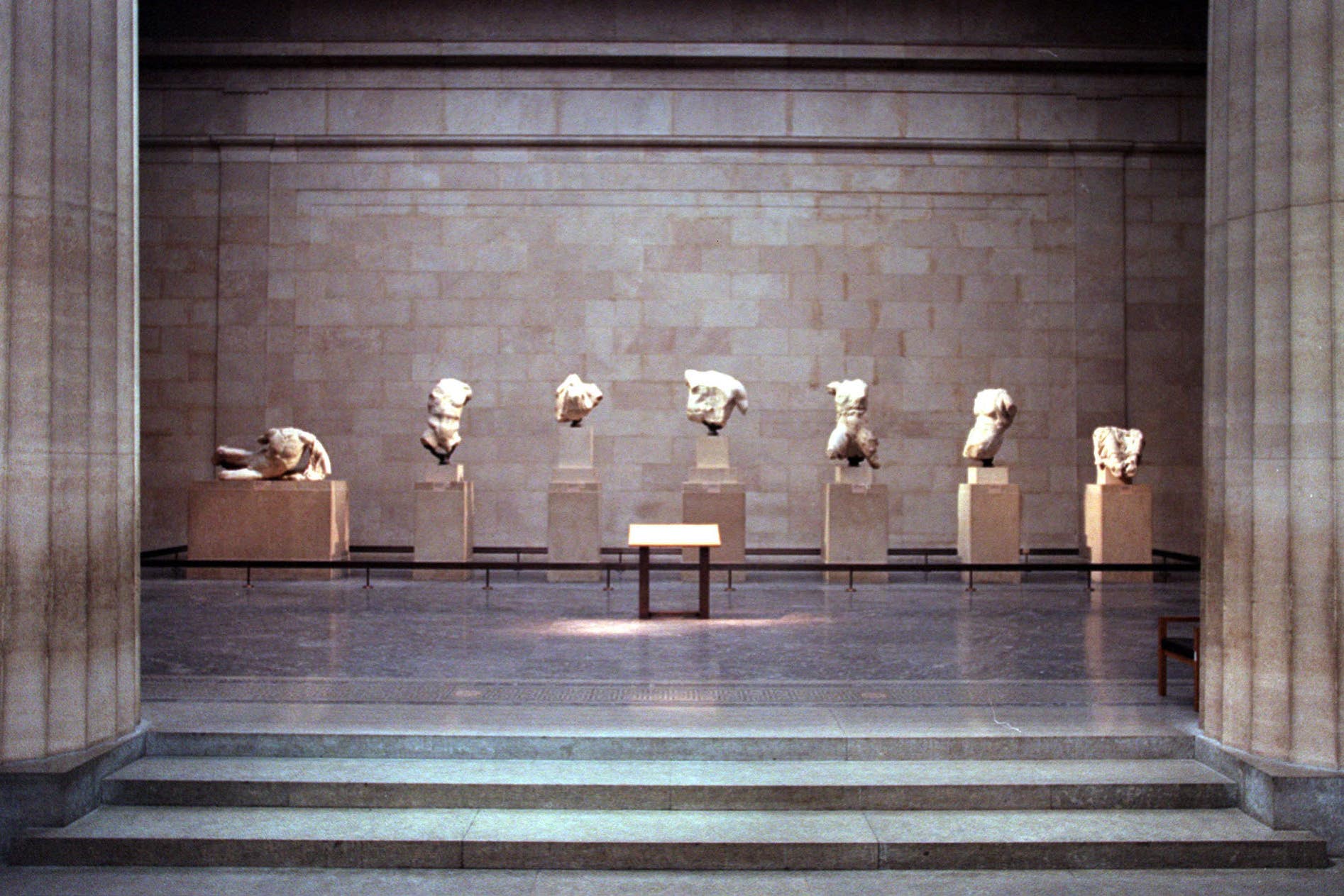Greece and the British Museum are “still some distance” from a deal to send the Elgin Marbles back to Athens, George Osborne has said.
The former chancellor, now chairman of the museum, confirmed it is looking at a deal that would see some of the sculptures returned to Athens in exchange for Greek treasures being displayed in London.
But he said that, while the museum is being left to it in negotiations with Greek officials, any agreement is a long way off.
Speaking on his Political Currency podcast, Mr Osborne said: “Well I think the clue is that I’m in New York rather than in London, and of course I would be in London if we were on the verge of reaching an agreement with Greece around the Parthenon sculptures.
“We’re looking to see if we can come to some arrangement where at some point some of the sculptures are in Athens, where, of course, they were originally sighted. And in return, Greece lends us some of its treasures, and we made a lot of progress on that, but we’re still some distance from any kind of agreement.”
Mr Osborne also praised Sir Keir Starmer’s handling of the thorny issue, which saw Rishi Sunak cancel a meeting with his Greek counterpart after he made a push for the sculptures’ return.
Kyriakos Mitsotakis met with the PM in Downing Street this week, having held a series of private meetings with British Museum officials this year.

“From what I can gather from the meeting with Keir Starmer, is that Keir Starmer has said, this is very much a matter for the trustees of the British Museum, who are independent of the government,” Mr Osborne said.
He added: “It’s not the same as Rishi Sunak, who refused to see the Greek prime minister.”
A Greek official told The Times this week that “progress for the return of the Parthenon marbles has been made by the two sides and that is why Mitsotakis is meeting with the British prime minister”. “Nothing is in hiding. Nothing is hidden,” they added.
Sir Keir is thought to be more open to the idea of returning the Elgin Marbles, also known as the Parthenon Sculptures, than his predecessor.
But any deal would see them loaned to Greece temporarily, with a change of law required for any permanent handover of the sculptures.
The marble statues came from friezes on the 2,500-year-old Parthenon temple, and have been displayed at the museum for more than 200 years since they were removed by Lord Elgin when he was British ambassador to the Ottoman Empire in the early 19th century.
They were purchased by Parliament from Lord Elgin in 1816.
Some of the temple statues are on display in the Acropolis Museum in Athens, and Greece has long called for the collections to be reunited.
Greece alleges the marbles were illegally acquired during a period of foreign occupation – which the government and the British Museum reject.
A British Museum spokesperson said discussions with Greece about a Parthenon Partnership are “ongoing and constructive”.
“We believe that this kind of long-term partnership would strike the right balance between sharing our greatest objects with audiences around the world, and maintaining the integrity of the incredible collection we hold at the museum,” they added.







